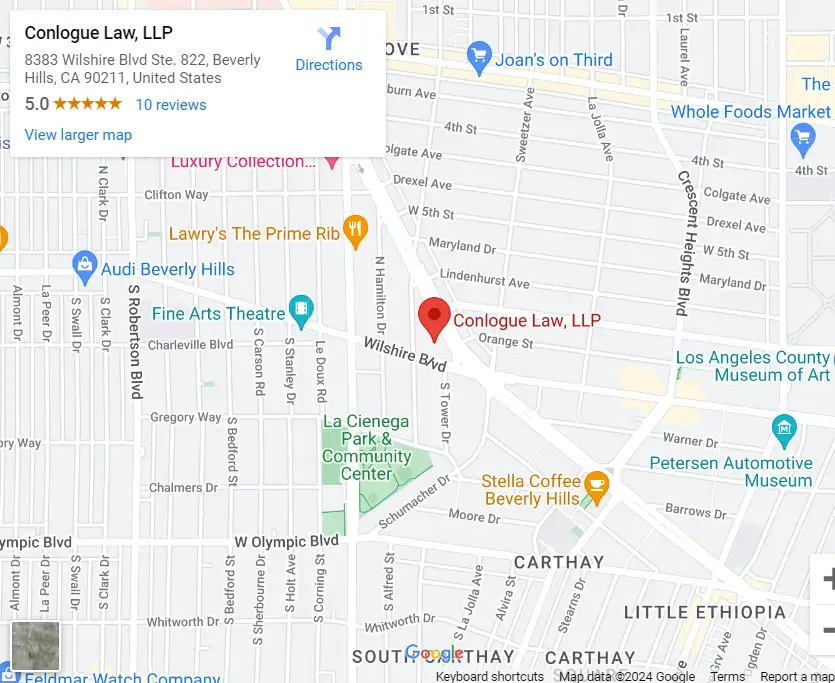Injured at Sea? Get the Compensation You Deserve
Los Angeles ports teem with activity, and with that maritime workers face daily risks. From vessel mishaps to dock accidents, injuries can occur. The Jones Act allows injured seamen to seek damages from negligent employers. If you work in California and have been hurt, a Beverly Hills maritime attorney can protect your rights.
The Jones Act ensures maritime workers can recover medical costs, lost income, and damages. If you want to learn more about your rights under the Jones Act, keep reading. Our article will explain how the law defends marine workers in Los Angeles ports and how to secure fair compensation.
Quick Summary:
- The Jones Act is a federal law that helps maritime workers hurt on the job. It lets seamen sue employers for negligence. Unlike workers’ compensation, it covers medical bills, lost wages, and pain.
- Not all maritime workers qualify as “seamen” under the Jones Act. To qualify, you must spend at least 30% of your time on a vessel in navigable waters. This includes crew members but excludes shore-based workers. This includes crew members but excludes shore-based workers.
- If hurt at sea, act fast. Jones Act claims must be filed within three years of the injury. Delays weaken your case. Contacting a lawyer early can help protect your rights and meet deadlines.
- Maritime workers face risks like slips, crane accidents, and unsafe deck conditions. These injuries can cause fractures, spinal damage, or fatalities. The Jones Act covers these incidents if employer negligence is involved.
- Employers must provide safe working conditions and maintain vessels. This includes fixing equipment and training workers. If they fail, you can sue under the Jones Act. Offshore rigs and barges also count as vessels.
What Is the Jones Act and Who Does It Protect?
The Jones Act, also called the Merchant Marine Act of 1920, is a federal law that helps protect maritime workers who are hurt on the job. It gives injured seamen the ability to seek compensation from their employers when negligence leads to injury.
Unlike standard workers’ compensation, the Jones Act allows recovery for a wider range of damages. Medical bills must be covered as well as lost wages, pain and suffering, and potential future losses related to their injury.
Who Qualifies as a Seaman Under the Jones Act?
Not every maritime worker qualifies as a “seaman” under the Jones Act. Specific criteria must be met to be eligible for its protections. Those that qualify are the crew who help operate the vessel.
To qualify as a “seaman” under the Jones Act, a worker must actively contribute to the vessel’s operation. This includes those working in the engine room or galley but does not extend to shore-based employees. Generally, a seaman must spend at least 30% of their time working on a vessel in navigable waters.
Filing Deadlines for a Jones Act Claim
It is important to act quickly if hurt while working on a vessel. Missing this deadline may delay your much needed compensation, and may even prevent recovery. Keep this in mind, a Jones Act claim must be filed within three years from the date of the injury. Delays can weaken your case.
Contacting a Beverly Hills maritime attorney as soon as possible will protect your legal rights. They can ensure your claim is filed within the required timeframe.
What Are Common Maritime Injuries Under the Jones Act?
Life at sea or on vessels carries inherent dangers, and accidents can lead to various injuries for maritime workers. The Jones Act acknowledges these risks and offers avenues for compensation when employer negligence contributes to these incidents. Accidents can happen in many ways, including slips, equipment failures, and unsafe deck conditions. Some common incidents include:
- Deck Injuries: Dangerous or defective conditions on decks put workers at risk. Seamen, longshoremen, and dockworkers can suffer injuries due to these hazardous conditions needing thorough investigation.
- Crane Accidents: Cranes and other heavy equipment are important for ship operations. Malfunctions or improper use can result in severe injuries or fatalities, demanding immediate legal attention.
- Slip and Falls: Wet or uneven surfaces on decks and stairways create slip hazards. These can cause broken bones, head injuries, or spinal cord injuries that impact mobility and long-term health.
What Are the Employer’s Responsibilities Under the Jones Act?
The Jones Act places specific responsibilities on maritime employers to ensure the safety of their workers. It requires employers to maintain safe working environments and properly maintain the vessels where seamen perform their duties. This goes beyond just providing a job; it includes keeping the workplace safe. Here are some duties for you to consider:
- Safe Working Conditions: Employers must give workers reasonably safe working conditions to prevent accidents. It requires a constant look-out for possible safety hazards.
- Vessel Maintenance: Employers must maintain vessels, like drilling rigs, barges, and ships, in a safe condition. All equipment and the vessel should be safe for its intended use.
Offshore platforms, drill ships, and barges are also classified as vessels under the Jones Act. It is important to remember the Jones Act is not workers’ compensation. It allows a seaman to sue his employer.
What Compensation Can You Receive Under the Jones Act?
If you have been hurt while working at sea, the Jones Act offers a path to recover damages. A successful merchant marine injury settlement can provide money for expenses and losses. The compensation you receive after an injury depends on the details of your case. Factors like the severity of your injury, lost income, and pain all play a role in determining the final amount. Here’s what you should consider:
- Coverage for Medical Costs: Under the Jones Act, employers must pay for medical treatment related to your injury. This includes immediate care, ongoing treatment, rehabilitation, and future medical needs.
- Compensation for Lost Wages: Injured seamen are entitled to a daily allowance while unable to work. Additionally, you can claim compensation for lost wages, including past earnings and future income you may miss due to your injury.
- Seeking Damages for Pain and Suffering: Beyond financial losses, you may also seek compensation for physical pain and emotional distress. This can include disfigurement, long-term disability, and the lasting impact of your injuries on your daily life.
A Jones Act claim can provide the financial support needed to move forward after a workplace injury. Seeking legal guidance can help ensure you receive the full compensation you deserve.
Don’t Delay Your Jones Act Claim – Call Our Beverly Hills Maritime Attorney Today!
The Jones Act gives important protections to maritime workers hurt on the job. It allows them to seek money to cover medical bills, lost wages, and pain. Understanding these rights is a need for anyone working on vessels in Los Angeles and across California.
If you or someone you know has been hurt while working at sea, reach out to Conlogue Law LLP today. Our Beverly Hills maritime attorney can review your case and explain your options. We offer advice for a range of maritime injuries. Don’t wait to get the help you need.
Conlogue Law LLP also handles cases of personal injury, civil rights law, and as a trial attorney. Book a free consultation today to discuss your situation and learn how we can help.








